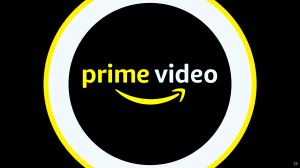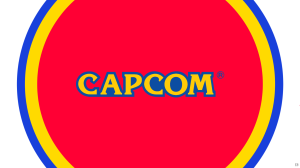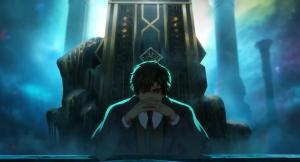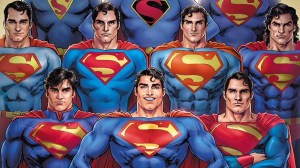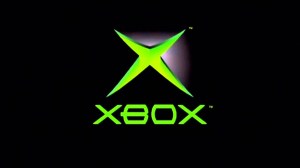
Ibrahim Moustafa is making a momentous climb in the world of comics this year. Coming off of the DC Comics series Doctor Fate and hardcover publication of the Eisner-nominated High Crimes, Moustafa has exciting, new projects lined up including Jaeger at Stela and an unannounced creator-owned series, the former of which he will also be writing.
Videos by ComicBook.com
ComicBook.Com talked with Moustafa at HeroesCon in Charlotte, North Carloina. Together they discussed new projects, James Bond, and a whole lot more.
Right now when you are not working on comics, what are you reading or watching?
Ibrahim Moustafa: I am currently going through Fleming’s Bond books, mostly on audio so I can do it while I am working because I am pretty much always working. Then I have been really enjoying Penny Dreadful. I don’t know if you watch that at all.
There are a lot of Bond people involved in it. Timothy Dalton is on it. Sam Mendes, who directed Skyfall and Spectre, is a producer. John Logan, who wrote Skyfall, is a creative writer on it. So I’ve been in a very heavy Bond phase for several months. I actually went through all of the movies.
Damn.
Moustafa: Yeah. I got the Blu-Ray box set. My fiancé works nights, so a lot of times I am just left to my own devices, working at home with the dog. I put on a Bond movie and let her go.
I’ve read the first three of the Fleming novels in the last year and they are really great entertainment.
Moustafa: Right? I feel like a lot of the earlier movies left a lot of the good stuff on the table. So I am excited that maybe in future installments they will be a bit more preferential to the text. That is pretty much it for now.
When you are listening to a Fleming novel while you work, is that to keep a different part of your brain engaged and not focus so critically on something?
Moustafa: A little bit of that. Also, it is kind of like being on a road trip every day. You need something to keep your mind occupied. I think if you distract yourself a little bit from the work, it keeps you from overthinking it too much. With something like art especially, you have a tendency to over render or do a little too much. I like it to help aerate my brain.
I was talking to Michel Fiffe earlier about the need for comics artists to relax. You can’t be too precious about what you are working on.
Moustafa: You really do, absolutely. Especially if you are doing stuff on a deadline or work-for-hire and there are other people in the chain (the colorist, the letterer), you have to make sure you are not taking too long to keep everybody happy. I think you grow more that way, too. If you are spending too much time worrying about the little things, then you tend to miss some of the broader strokes.
There is a definite immediacy to comics where deadlines are non-stop, so there is always that risk of overthinking it or falling behind or worrying too much about one thing at the cost of the entire comic.
Moustafa: And if you do that, when does it end? There is always something you can find to nitpick about yourself.
What do you find yourself doing with your artwork to make sure that you stay engaged and don’t fall out of love with the medium?
Moustafa: I definitely like to try to incorporate different techniques that I see from studying the greats. I have been focusing a lot on Alex Toth’s work lately. And then on some of what other people are doing, like James Harren, who I think is one of the best out there. He is doing some really, really cool stuff with screentones. Other people can be attributed to this, but I see him using a lot of screen tone stuff on the page, which is really cool. I thought all of that was extinct. People would say, “Oh, you can’t get screen tone anymore.” But manga creators have been using it for years now.
You have to import those sheets from Japan now.
Moustafa: Exactly. Just playing with that kind of stuff is fun. Also, I have really been focusing on a less render-heavy approach lately. So that has been fun. Every day you go to tackle a page, it is sort of a new challenge. How am I going to apply all these aspects to this specific page?
You feature a broad range within your work. Looking at things like Godzilla and High Crimes, there are massively different scopes and levels of realism in those two.
Moustafa: I have definitely been stretching the limits of my capabilities; It has been fun. This yet-to-be-published thing I am doing here [referring to inked pages on display] is coming out at some point in the next year. It is a lot of different from what I typically do in terms of subject matter and it has been really fun to do some world building.
There is a very strong fantastical element to the imagery. I think Doctor Fate or or even Godzilla still focuses primarily on the characters. This feels universal.
Moustafa: It is always fun to step outside of your comfort zone. That is another thing I have been trying to implement more lately – the subject manner and techniques and trying things that are off the beaten path for myself.
Along those lines, you are writing your first comic at Stela.
Moustafa: Yes.
What has it been like transitioning from working directly from someone else’s script to writing for yourself?
Moustafa: It has been great. It has been really, really rewarding and interesting. I am still writing in full script even though I am drawing for myself because the editor needs to see what I have planned. But, it is definitely a different muscle. I have been trying to work that out, and doing a lot of studying about writing and storytelling conventions to prepare and make sure I am doing it right.
Having Jim Gibbons, who is an excellent editor, has been really helpful. He is a guy who is out to make great comics with people he collaborates with. If anything needs to be changed, he is great about letting me know and helping to steer me in the right direction.
Writing for yourself, you don’t have to worry about something being unclear. You can write to what you know your strengths to be and what you want to work on.
Moustafa: That has a big part of the fun for me. It is pretty common to get a script, read it, and be like, “Oh, no! This might not play to my strengths in the way I was hoping,” and then trying to make that work. With this, I can write it for the things I can do well. Then there is some stuff that is still challenging. The format is different so that presents a different challenge in whether it is even something maybe I can handle well. I have learn how to create specifically in this context.
You’re referring to the scroll down style of reading in the Stela app. Are you still designing your comic to work on a page as well as on the app?
Moustafa: Yes. I know a lot of the people working on Stela stuff are drawing it vertically. I think it is a really interesting way to approach the projects because it is so specific to that format. It is changing the limitations on what you can do vertically, which is really cool. For me, I have been doing it in the standard page layout style to make it manageable on top of other monthly work. And doing it that way it is a language I am more fluent in.
Also, these do have the potential for a second life in print. Part of that is keeping it easier for myself in the long run. As far as your question about if it is easier to write for myself, it can be challenging sometimes because when I write a comic and when I actually draw it can be pretty far apart time-wise. I have to be fairly specific so that I don’t forget what I was doing. I do not want to guess, like, “Wait, what was I getting at here?” It has definitely been a challenge on a lot of fronts to make sure I am satisfying the different formats and what I need from it.
On the Stela work, do you find that there is a central drive to what you are trying to give yourself: being a writer challenging you as an artist? Do you find that those two roles are separate in your mind?
Moustafa: No. That is an interesting question though. I have looked at it as storytelling as a whole. In a project where someone else writes, I am still responsible for the visual storytelling of that. In that respect, it is very similar because either way what ends up on the page comes through my lens and filter and how my mind worked to tell the story.
Working on projects at both Stela and other publishers, does the diversity of those different subjects you are working on – the different styles of working and different topics – keep you flexible?
Moustafa: It is definitely a gear shift, especially because I am drawing the Stela thing in a throwback style. There are much more simple lines. I am not doing a lot of heavy rendering. It is in a black and white, less is more type of approach. In shifting those gears, there is a little bit of muscle memory that has to kick in. I have to recalibrate myself a little bit to that. In terms of the varying subject matter, it is really, really ideal because just when I am starting to get a little weary of one, I can switch to the other. It refreshes me to reset and go back to the other one.
You don’t have the potential drag of working on the same thing for two years and seeing the same faces every day.
Moustafa: Exactly. With High Crimes, I drew a lot of tents. I drew a lot of rocks. I drew a lot of backpacks.
Are you making sure there are no backpacks in your current scripts?
Moustafa: I did a couple of issues of Doctor Fate. The main character in both of those issues had a backpack on in every single panel. There was a little bit of twitching that happened. So far I haven’t had anything that has been overly repetitive, which is nice.
Looking ahead at these announcements to come and books that are launching, it feels like you are getting more control over your work and your career. You’re working on another creator-owned comic and writing your own comic at Stela. Is it changing how you are viewing yourself and your position within the comics industry?
Moustafa: I don’t know if I am far enough away from the process of making it to see it from a different vantage point yet. I would like it to put me on the map as a more diverse storyteller. There is a fine line between being viewed as somebody who is given the benefit of the doubt in a collaboration because they know how to tell a story versus someone who people may think they know better than. I am trying to definitely keep that in mind as I move forward. The collaboration is my favorite part about making comics. Getting on the phone and tossing ideas back and forth with a new writer on this project is some of the most fun I can have.
Looking at that future, looking at this project with Kyle, looking at the project with Stela, what are you most excited about in the next year?
Moustafa: That is a good question. Getting to show people what I have been working on. I have done four fill-in issues and then gotten an issue of Godzilla in Hell, which is a stand alone thing. I have done a handful of covers and stuff. So I am really excited to have more complete work, whether it be more of the creator-owned collaborations I’m working on or the complete story of my Stela thing, just something to add to the shelf.
Chase Magnett is a freelance journalist, critic, and editor working with comics, film, and television. He has been hooked on comics since he picked an issue of Suicide Squad out of a back issue bin fifteen years ago. When Chase is not working with comics in some way he spends his time rooting for the San Francisco 49ers and grilling. He currently contributes to ComicBook.com and other outlets.


